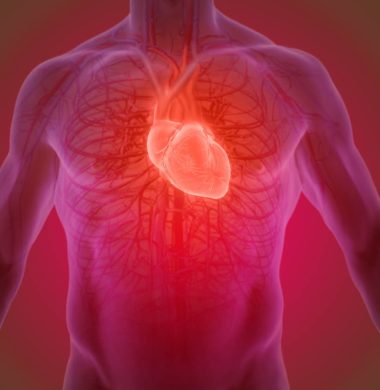Inflammatory Foods and How They Impact Your Heart

Heart health can be impacted by many factors. We often talk about the symptoms, both obvious and less so, that can cue you into when you need to see a doctor. We talk about lifestyle choices that can help keep your heart health a priority no matter what. Today, we’re covering a little bit of both in our discussion on inflammation and heart disease.
Inflammation and Heart Disease
Unlike elevated cholesterol and high blood pressure, inflammation is often overlooked as a factor that can contribute to heart disease. Inflammation occurs as part of your body’s natural immune response system. It can happen when your body is trying to fight off an infection, and it can also occur as a response to the buildup of fatty deposits in your arteries. The role inflammation plays in heart attacks, strokes, and heart disease is a topic of continued discussion and research in the cardiovascular community, but because the body seems to perceive plaque as something foreign, that shouldn’t be in a healthy blood vessel, it’s possible that inflammation occurs as a response. Under the wrong set of circumstances, this can lead to a rupture, or heart attack, and can put your body at higher risk for heart disease.
Inflammatory Foods to Avoid
While it isn’t directly the same type of inflammation discussed above, inflammatory foods can worsen the issue, or contribute to the lifestyle choices that may build plaque in the first place. If inflammation is a concern for you, avoiding foods that cause it might help lessen symptoms and may increase your cardiac health as well. Not sure what to avoid? Here are a few commonly known inflammatory foods.
Sugar and High Fructose Corn Syrup
We know sugar is hard to avoid entirely, it’s in almost everything, but by actively avoiding added sugars and refined sugars, you reduce your risk of dietary-induced inflammation significantly.
Fried Foods
Fried foods are no good for your health or your heart on multiple levels, and their inflammatory properties are one of them. The way the oil reacts when heated in the methods required for frying, and the number of unhealthy oils often used in frying both contribute to the adverse side effects. Steer clear of fried foods if you’re worried about inflammation (and steer clear of them if you want to keep your heart healthy for other reasons, too!)
Refined Carbs
Whole grains are excellent for the body, and the heart, because they include all of the pieces necessary for your body to properly process the nutrients and utilize what the whole grains and complete carbohydrates have to offer. The issue here lies with refined carbs, which have had most of their fiber removed. The fiber is what helps your body process the carbohydrate, and without it, your blood sugar rises more rapidly, which contributes to inflammation.
Excess Alcohol
If you’ve noticed a trend here, it’s probably that inflammation isn’t the only thing to be wary of with several of the items on this list. Excess alcohol can cause multiple health problems, for your heart and otherwise, but understanding how it brings inflammation to the table can broaden your understanding of where those symptoms might be coming from, and what you can do about it. Heavy drinking can lead to leaky gut, which can contribute to inflammation all over the body, including your heart, potentially leading to organ damage.
There are many other things that contribute to inflammation, and what causes inflammation for you may differ from what causes it for someone else. If you’re concerned about inflammation and your cardiac health, we recommend discussing it with your cardiologist or primary physician to decide a course of treatment or lifestyle changes that might be best for you.
- Can I Shovel Snow with a Heart Condition? - March 18, 2024
- 6 Tips for Resuming Outdoor Exercise this Spring - March 11, 2024
- Early Signs of Heart Disease - February 26, 2024
Sign Up
As with any health concerns, your specific treatment program should be discussed thoroughly with your primary care physician as well as any specialists who may need to be consulted – like a cardiologist.
Sign Up
